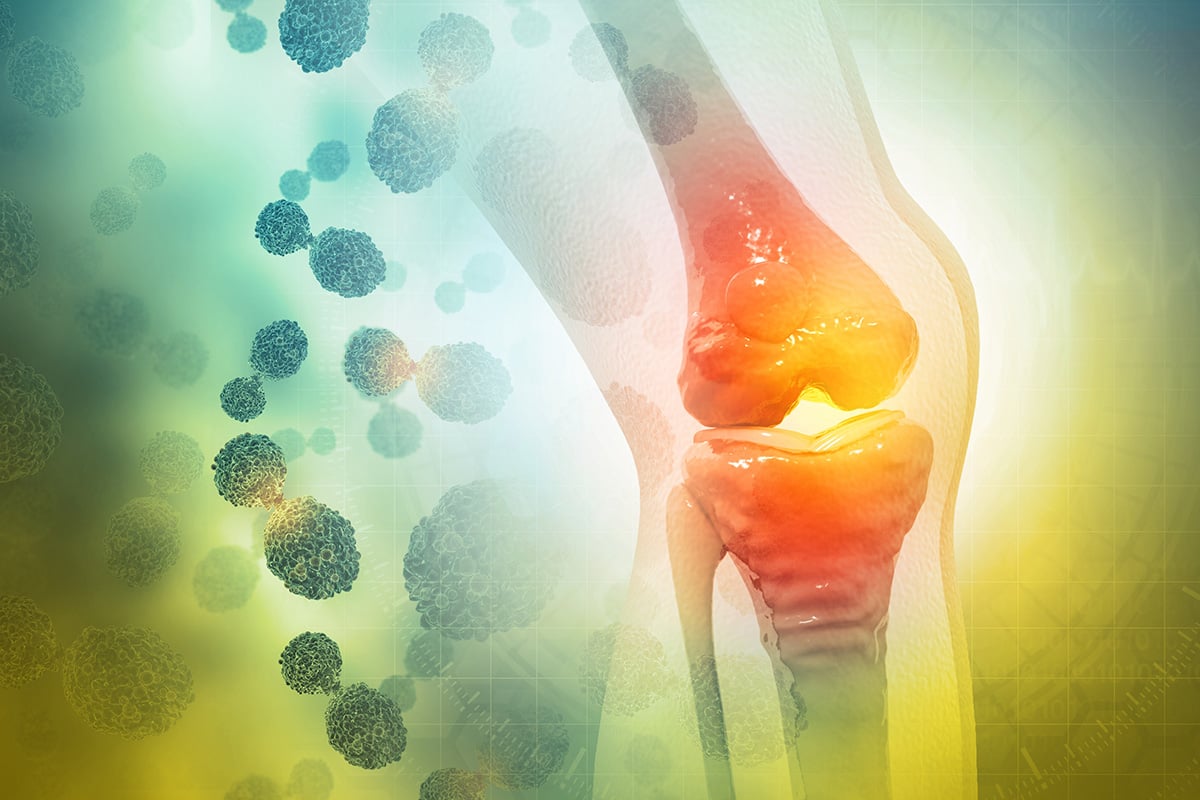
Reviewed and Updated: August 21st, 2024
Antioxidants and inflammation are the words of the day when it comes to health. It’s easy to hear them so much that you begin to ignore them. But don’t. Inflammation can take a heavy toll on bone health and many other health areas. Let’s discuss how.
Inflammation Can Lead to Osteoporosis
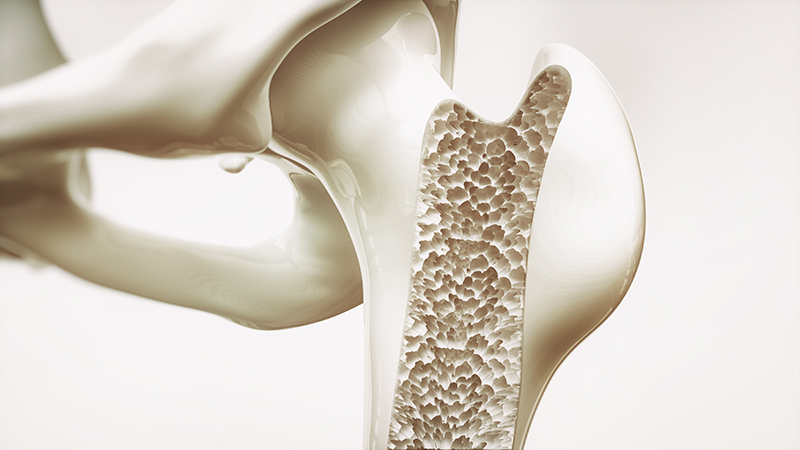
Osteoporosis is a condition characterized by weak, brittle bones that fracture very easily. The main risk factor that people think about is age and gender (women entering menopause are generally more susceptible). But inflammation can also tip the balance towards this condition.
Bones are constantly undergoing remodeling, a careful balance of bone resorption, reformation and mineralization (breaking down old bone cells and forming new ones). Chronic inflammation can throw off this balance and lead to increased resorption happening much faster than the bones can rebuild.
Increased Overall Fracture Risk
Even outside of Osteoporosis, weakened bones due to inflammation are more susceptible to fractures, even from minor trauma or stress.
A number of inflammatory conditions such as rheumatoid arthritis, lupus, Chronic Kidney Disease and system inflammatory response syndrome can all lead to bone degradation. Inflammation is an important part of bone healing process but constant and chronic inflammation results in bone damage.
Inflammation Can Interfere with Injury Healing

Falls and fractures are never pleasant but inflammation makes the situation much worse. Inflammation can delay or prolong the healing process because it interferes with the regulatory function of the cells that break down bone tissue. This causes them to work in overdrive compared to the tissue being added. Injured bone tissue needs inflammatory cytokines as part of the healing process but if there is chronic inflammation it can reverse healing and increase damage.
Joint Degradation
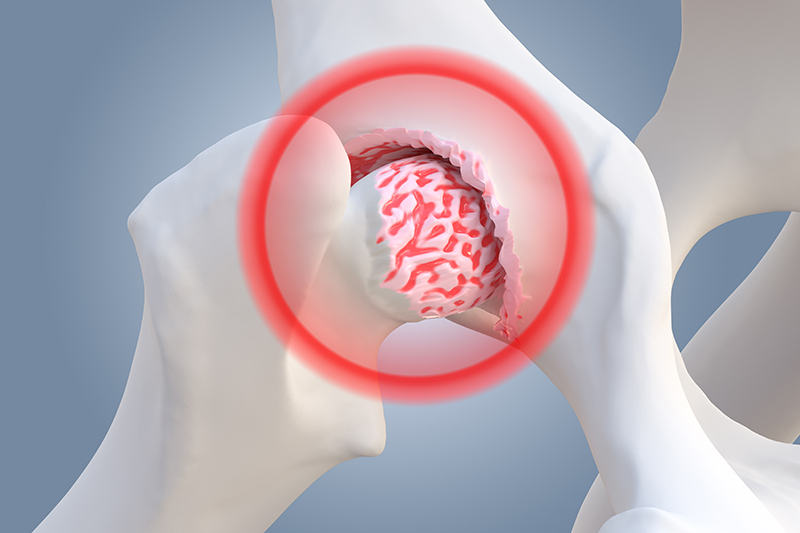
Your joints protect the bones in your body from the impact of movements so they’re an equally important part of the bone health and mobility formula. Consider just the shocks your spine takes from running over bumps while driving.
Autoimmune conditions like rheumatoid arthritis can unleash an inflammatory assault on your joints. Immune cells in the lining of the joints attract other immune cells and together lead to thickening of the joint lining, new blood vessel formation, and ultimately joint damage
Chronic inflammation in the joints can damage joint tissues (cartilage, bones, ligaments, or tendons) to the extent that bone-on-bone contact can happen. The result is potential bone damage and pain and stiffness that makes it difficult to move. This damage progresses overtime and can be irreversible.
Other Risk Factors for Weak Bones and Joints and Decreased Mobility:
- Corticosteroid use - This class of drugs used to control inflammation can interfere with the absorption of calcium and Vitamin D. Repeated treatments can cause loss of cartilage.
- Lack of or Little Exercise - Weight-bearing exercise helps to strengthen bone tissue. Inactivity can result in thin, brittle bones along with stiff joints.
- Advanced Age - Being of advanced age and female (particularly postmenopausal) both affect bone loss and are major risk factors for osteoporosis.
- Declining Muscle Mass - Muscles, bones, and joints work together as part of a system. As your muscle mass decreases, your bones take on more load, putting you at greater fracture risk. Muscle mass naturally decreases with aging that is why weight exercises and protein intake are paramount for the elderly to promote muscle growth.
- Low Intake of Key Nutrients (below)
- Calcium - For bone health and strength
- Collagen - For joint tissue integrity and elasticity. Bone Essense™ featuring patented Kolla2® provides 600 mg of Type II Collagen per serving.
- Omega 3 - Omega 3 is anti-inflammatory and has properties that can help with joint flexibility
- Vitamin D - To aid in calcium absorption
- Magnesium - To assist in the regulation of calcium and Vitamin D
- Phosphate - Aids in bone mineralization
- Vitamin K - Also aids bone mineralization and blood clotting
- Zinc - Aids collagen synthesis
- Vitamin C - Also aids in collagen synthesis
Bottom Line
Overall, inflammation can have detrimental effects on bone health by disrupting the delicate balance between bone formation and resorption, impairing bone healing, degrading joint tissues, and increasing the risk of fractures. Managing inflammation through lifestyle changes, medications (when approved by your physician), and other interventions is crucial for preserving bone health and mobility.
*These statements have not been evaluated by the Food and Drug Administration. Products are not intended to diagnose, treat, cure or prevent disease.






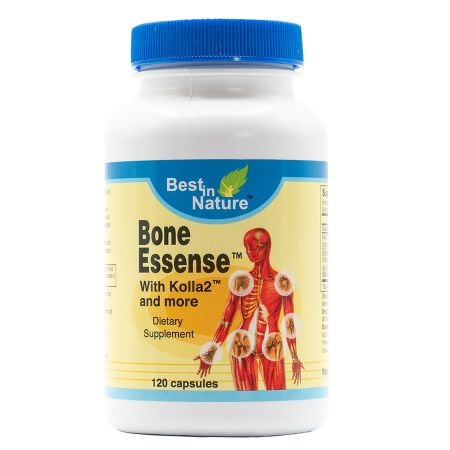
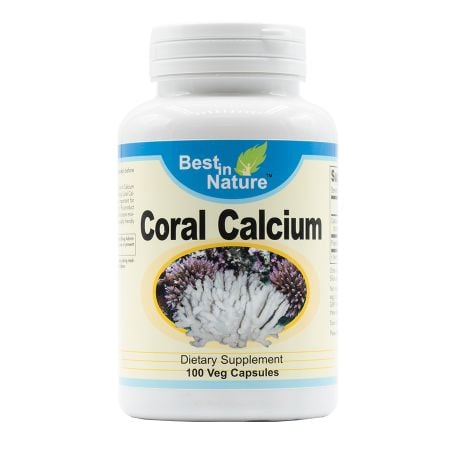
Validate your login
Sign In
Create New Account